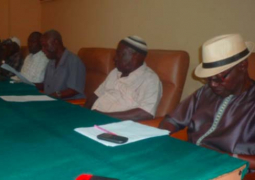
The policy is to ensure that people are able to maximise the use of Intellectual Property (IP) system for development.
The Gambia’s development of the document was prompted by WIPO’s policy for member countries to adopt national IP policies and strategies that are aligned to development goals.
Speaking at the validation forum, senior counsellor at the WIPO Regional Bureau for Africa, Loretta Asiedu, said it has taken ages for the African continent to develop IP system as a tool for economic development.
“We have missed out on the opportunities the intellectual property system has to offer in unleashing our wealth and unlocking our potential as a continent” she said.
The WIPO official said her office is committed to shaping the IP system in The Gambia to ensure that the country is able to unlock her economic potentials through effective use of the IP system.
The Gambia initiated the development of the national IP policy and strategy three years ago and along the line called for assistance from WIPO in continuing the project.
WIPO responded by collaborating with the Ministry of Justice in organising a workshop to enable stakeholders to revisit the project, exchange views on new developments and highlight prevailing ones.
Mrs Asiedu explained that the workshop was held to enable WIPO determine how best to resume the national IP project without undue delay.
In addition to the workshop, several meetings were held with various focus groups in The Gambia.
“The most important element in this entire process is that every aspect of the draft IPDP has been drafted based on stakeholders inputs,” she said.“The important thing about this process is that it places the Gambian certification stamp on all outcomes and maintains ownership of the process.”
Cherno Marenah, legal secretary and solicitor general, said the advent of knowledge and its continued relevance to socio-economic development has necessitated the formation of IP policies and strategies across the world.
“The government of The Gambia has decided that Gambia shall not be left behind,” he said, adding that in modern governance, development objectives are achieved first by the formulation of a strategy and policy to serve as a blueprint.
Formulation is followed by implementation of the policy and periodic evaluation of the gains made by the policy.
Mr Marenah noted that the international IP laws and systems are undergoing significant changes and the formation of a national IP strategy and policy is imperative.
He noted that intellectual property has become central in every sector of the country’s economy as it encourages creativity and innovation.
The national IP policy and strategy will build the IP capacity of The Gambia with the overall objective of making the country attractive to foreign direct investment, Mr Marenah explained.
“This draft strategy will not just serve as a blueprint and guide to our development aspirations, it will also be a tool to promote public interest, innovation and technological progress,” the legal secretary and solicitor general said.


